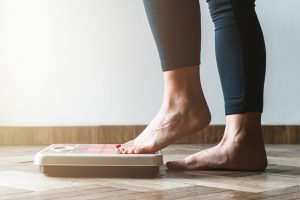 Exercise is part of a heart-healthy lifestyle, but is building muscle really the best way to go?
Exercise is part of a heart-healthy lifestyle, but is building muscle really the best way to go?
According to a new study, losing fat seems like it’s far more important to heart health than adding strength and muscle.
Advertisement
That isn’t to say that muscle is bad for heart health or that it isn’t beneficial in several other areas – like balance, functionality, independence, mobility, etc. – just that it might not be a primary factor in heart functionality.
After following 3,200 British adults born in the 80s for a quarter-century, researchers found that those who lost fat were far less likely to develop heart disease risk factors like high glucose, inflammation, and bad cholesterol.
The basic conclusion was that changes in fat matter much more than changes in muscle when it comes to heart health. Losing fat, for example, appeared to be five times more effective at lowering levels of “bad” LDL cholesterol than gaining muscle.
If you think about it, building muscle doesn’t necessarily result in fat loss. It may make your metabolism more efficient, but it’s completely possible to gain muscle without losing fat.
Advertisement
To put it in perspective, many bodybuilders operate in a seasonal approach to their muscle gain. When they are “in-season” for competition, they appear lean and muscular. In the offseason, many, while remaining very muscular, put on plenty of fat and consume excess calories so they can grow. The result is that they look completely different.
The point is that muscle does not regulate fat gain, and excess fat is a known driver of higher glucose levels, high cholesterol, inflammation, high blood pressure, and other heart disease risk factors.
Muscle gain has many other benefits, it just may not make your heart healthier unless it’s part of an overall fat loss program. This would include a heart-healthy diet and cardiovascular activity, like walking, jogging, etc.
